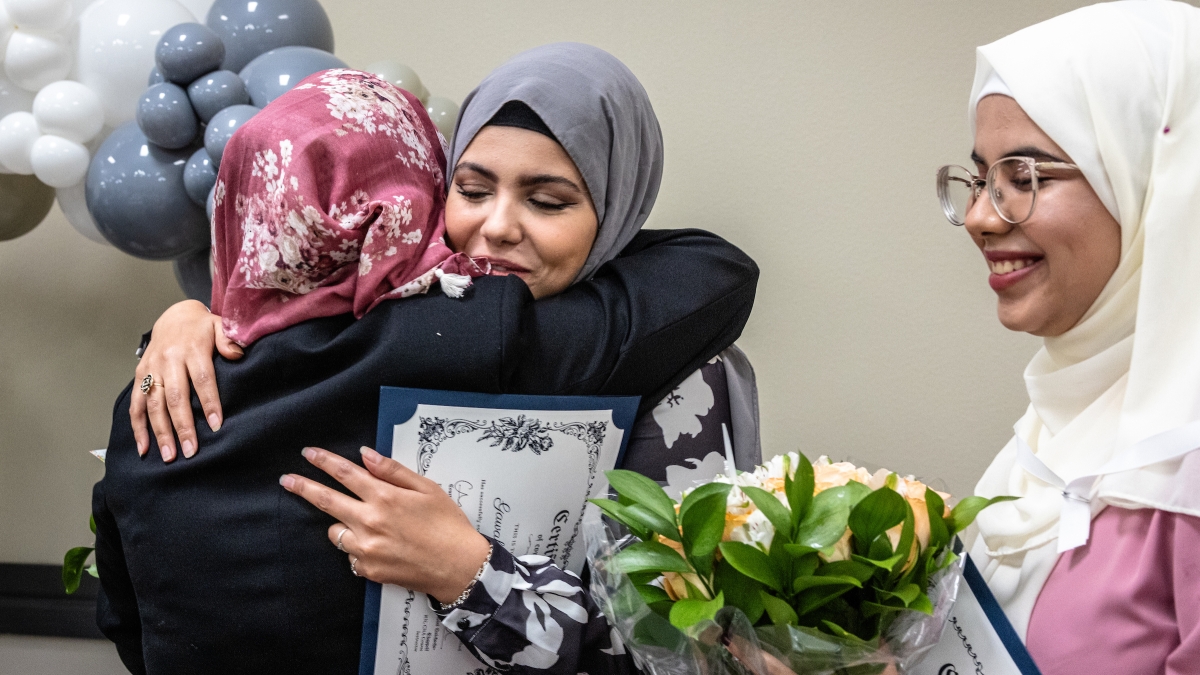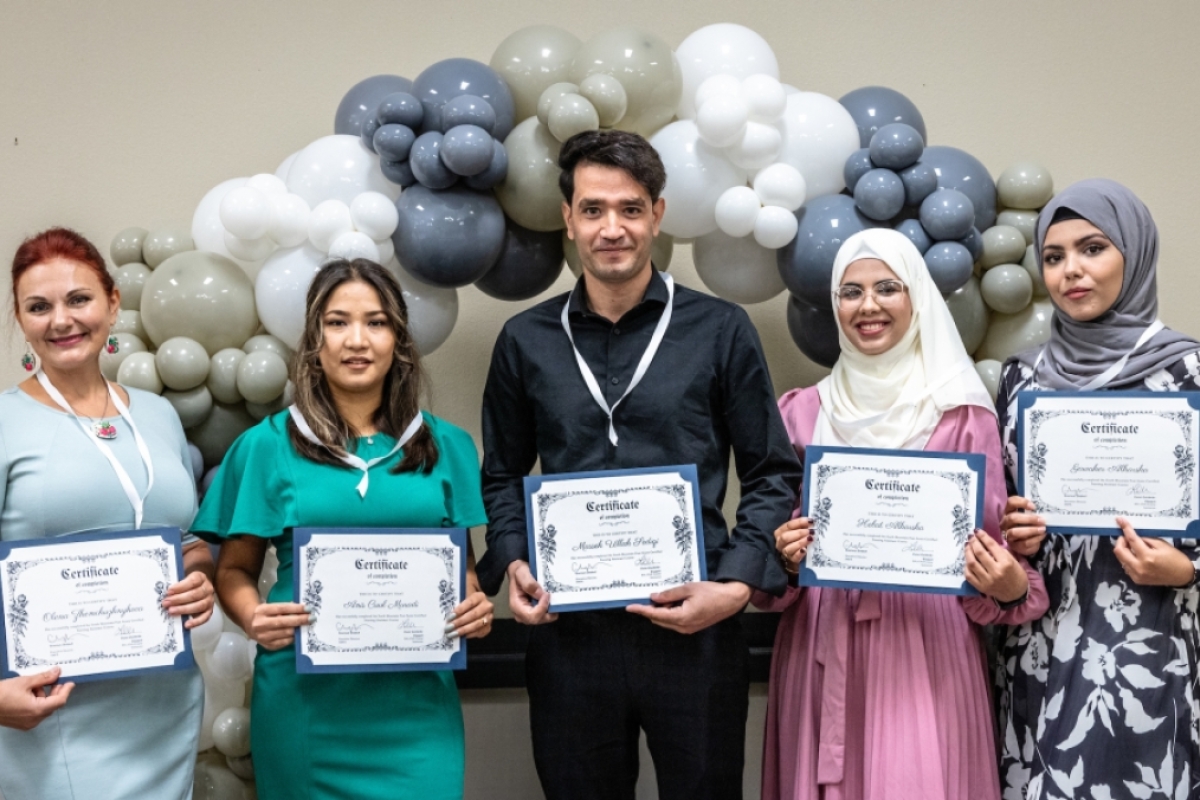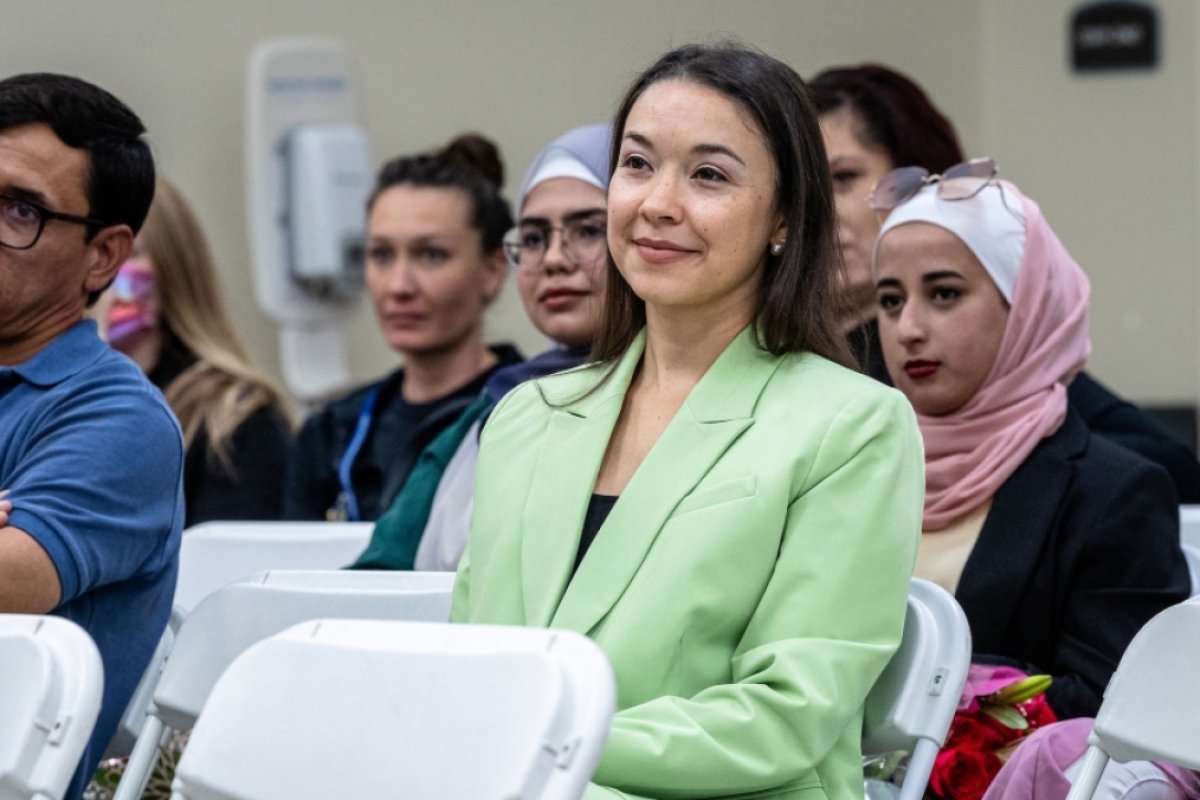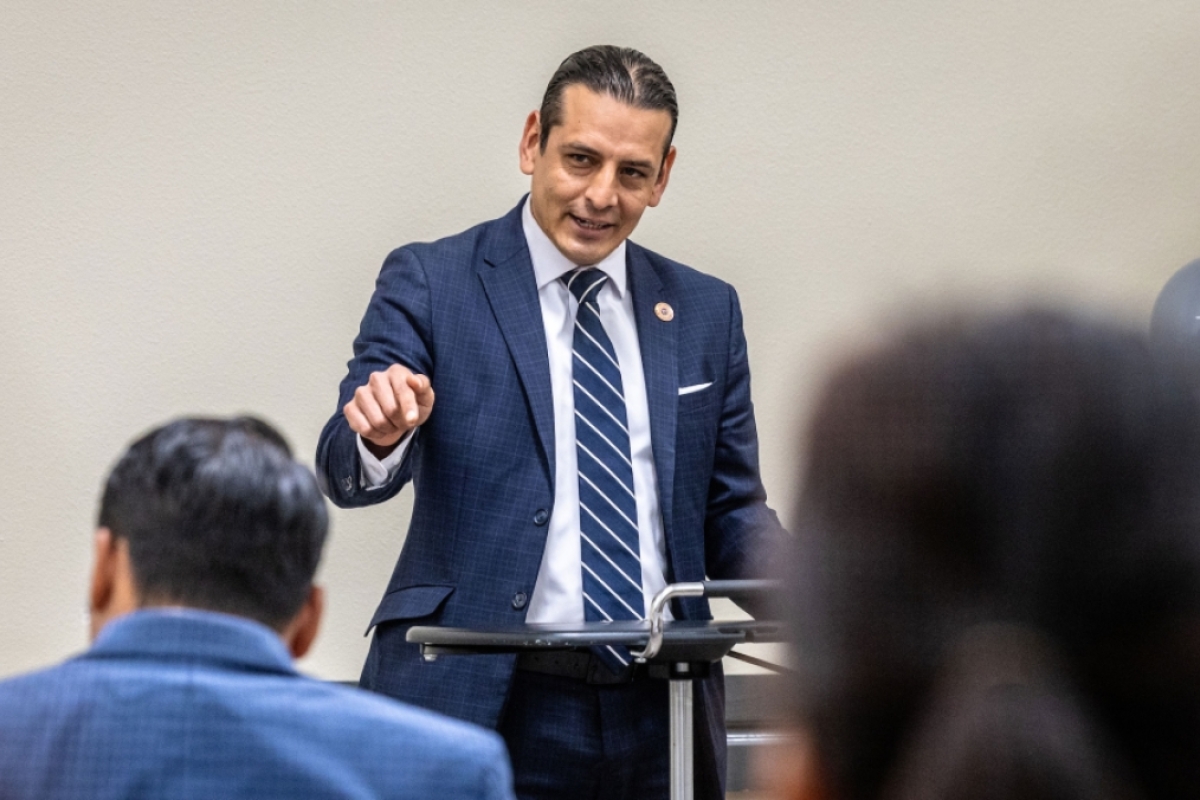Olena Zhemchuzhnykova worked as a registered nurse for 20 years in her home country of Ukraine.
A year and a half ago, with Ukraine under attack by Russia, she came to the United States, leaving her profession and almost everything else behind.
“All my life I worked with patients,” she said. “I loved it.”
On Sept. 21, Zhemchuzhnykova dressed up for her graduation from training as a certified nursing assistant in a unique program through Arizona State University. She was one of five refugees in Phoenix to participate in a paid certified nursing assistant training program as a way to start a new life in the U.S. Two of the other graduates are from Syria, and two are from Afghanistan.
The goal is for the graduates to pass the state licensing exam, after which they’ll work for South Mountain Post Acute care facility in south Phoenix, where they trained.
A grant from the U.S. Office of Refugee Resettlement is enabling ASU’s refugee-support initiative, Education for Humanity, to offer training, job skills, experience and credential attainment to prepare refugees for employment in professional or skilled career fields. The upskilling and reskilling initiative, called the Arizona Refugee Career Pathways program, leveraged funds from the Arizona Governor’s Office to train refugees in high-need areas like health care.
Like many refugees, Zhemchuzhnykova can’t just pick up her career in the U.S. She must start at the beginning. The Arizona Refugee Career Pathways program is a chance for refugees to do that and eventually work their way toward higher paying health care careers.
“It’s a chance for us to get a new life, to live normally, to work,” she said.
In addition to learning how to be a CNA, the refugees had English classes, provided by Friendly House, an immigrant-assistance organization in Phoenix. Friendly House was just one of several partners with ASU in the program, according to Joanna Zimmerman, associate director of Education for Humanity.
“This is unique in that it’s a paid training program, which is great because often, in order to advance, refugees have to make critical decisions in terms of opportunity costs, so many may want to pursue education or training opportunities but have to work because they’re the breadwinner for their family,” she said.
Another partner is Goodwill.
“Our career coach for the program is at Goodwill, which has full-service career centers, so they’re a strong resource in terms of job seeking,” Zimmerman said.
ASU assesses the refugees who apply to the career pathways program to determine their eligibility, then helps them set up a career navigation plan.
“We ask them what skills they have, what they want to do, and together we assess the gap that we need to fill to get them there,” Zimmerman said.
“We had someone who graduated from an HVAC technician program and someone who enrolled in CPA courses.”
So far, more than 40 refugees have come through the program.
“We want to use the funds in fields where there are barriers to entry, like the need for a credential or the need to be licensed,” she said.
The course included classroom and lab instruction and supervised direct patient care. The students learned basic nursing assistant skills, emergency procedures, safety and infection-control procedures, and age-specific mental health and social service needs.
Another partner is the Arizona Health Care Association, which is working to fill hundreds of job openings for certified nurse assistants.
“CNAs assist with daily living, such as toileting, bathing, dining, making the beds,” said Jeffreys Barrett, director of workforce development for the Arizona Health Care Association.
“Without the CNAs, a nursing home wouldn’t function.”
He told the graduates that they are needed now more than ever.
“We are at a point in our country where your gifts will be appreciated more than they ever have been, not only because we need you, but also because you’re bringing ‘you’ along with it,” he said.
“We know that in our skilled nursing facilities, we’re seeing Ukrainian seniors and Afghan seniors and Syrian seniors. Wouldn’t it be nice to see somebody from your homeland taking care of you?”
Employers like South Mountain Post Acute are to be commended, according to Travis Thompson, community development program supervisor for the Arizona Refugee Resettlement Program, who spoke at the event.
“They were willing to open their doors and do something unique,” said Thompson, who added that he helps employers to navigate the sponsorship or visa process in hiring refugees.
“I’ve seen refugees who had professional careers stay in low-wage jobs in the U.S.,” he said. “It’s, ‘Where’s my identity? My identity was with the profession I had.’
“But this gives people a path back. They’re not doctors or nurses, but with the support of community and organizers and employers, they can reclaim that career.”
Hebat Alharsha of Syria is the first student who has taken the CNA certification exam, which she passed. She’ll continue English classes before starting work.
Alharsha was a pharmacy student before she came to the U.S. in December 2021 with her sister, Gawaher Alharsha, who also graduated from the program last week.
“I took the program because I needed something here to start and to improve my English,” she said. “I want to continue, maybe in a field in chemistry.”
Zhemchuzhnykova also will keep going in her studies to reclaim her nursing career.
“This is a first step,” she said.
“I’ve met so many kind people here. I’ve never been to the desert before, but it’s beautiful.”
Top photo: Gawaher Alharsha (middle) receives a congratulatory hug from her friend, Maya Almasre, with fellow grad Hebat Alharsha (right) looking on. The Alharsha sisters, who are from Syria, graduated from certified nursing assistant training at South Mountain Post Acute Care Center on Sept. 21. Photo by Charlie Leight/ASU News
More Health and medicine

New study seeks to combat national kidney shortage, improve availability for organ transplants
Chronic kidney disease affects one in seven adults in the United States. For two in 1,000 Americans, this disease will advance to kidney failure.End-stage renal failure has two primary…

New initiative aims to make nursing degrees more accessible
Isabella Koklys is graduating in December, so she won’t be one of the students using the Edson College of Nursing and Health Innovation's mobile simulation unit that was launched Wednesday at Arizona…

Reducing waste in medical settings
Health care saves lives, but at what cost? Current health care practices might be creating a large carbon footprint, according to ASU Online student Dr. Michele Domico, who says a healthier…





